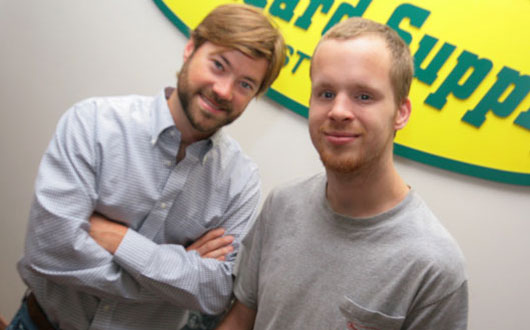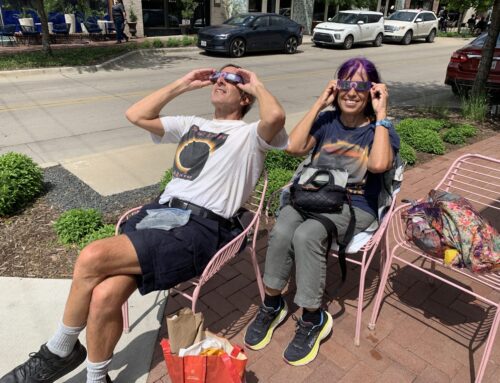 For Lyndon Sillings, the best part about having a job is independence.
For Lyndon Sillings, the best part about having a job is independence.
The 21-year-old never had a paying job before. But in January, he took a temporary position at Standard Supply through a new transitional employment program at the Well Community, an Oak Cliff nonprofit that helps low-income mentally ill people.
Sillings started out working 15 hours a week in the HVAC supply company’s office. By March, the company offered him a full-time job, outside the program. Now he splits his time filing in the office and filling orders in the warehouse.
The Well, which offers meals, counseling and other services, recently started the work program, in which they find local companies willing to offer jobs to its members. Once the member gets a job, a Well staff member also trains for the position. If the employee ever gets sick and can’t work, the staffer fills in, so there’s no disruption for the employer.
The work program began in January, and three Well Community members have since taken jobs with the community’s partner employers. So far, Well staffers have not had to fill in — the employees have shown up to work faithfully every day.
The Well Community was founded in 2002. But now it is taking on what’s called the “clubhouse model”, in which members take on responsibilities and support each other.
The Well is seeking certification from the International Center for Clubhouse Development. If it is successful, the Well Community will be the first certified clubhouse for psychosocial rehabilitation in Dallas. And the transitional work program is an essential part of that.
“It’s really a unique program because it benefits the members, and it benefits the employers, too,” program director Joshua Pulis says.
Another Well client, Marie Williams, is in her 50s and never had earned a paycheck, Pulis says.
“But she would come in here and work her tail off,” he says. It’s just that Williams never had the opportunity to work for wages, Pulis says, but as she got involved in the Well and took on more responsibilities, her mental health improved.
Now Williams has a job working in the ’50s nostalgic lunch counter at Ben Franklin Apothecary in Duncanville. And another member, Paul Taylor, recently got a job as a porter in an apartment complex. Once members have about six months experience on the job, they look for employment outside the program so that another Well Community member can have a shot at the transitional job.
Putting in work at the Well clubhouse is the first step for members to prove themselves and learn professionalism, Pulis says.
Sillings put in hundreds of volunteer hours at the Well, maintaining a spreadsheet with members’ information, among other duties. Now that he has a full-time job, he still comes in and volunteers on his days off.
“When I’m not working, I’m here,” he says.
Sillings, who has major depression and a learning disability, had an uneven childhood. His mother went to prison when he was 3, so he was shuffled among relatives until she came home seven years later.
He lived with his mother from ages 10 to 19, but life was difficult. They moved every few months, and several times were evicted. Seven people lived in their one-bedroom apartment, and sometimes no one would pay the electricity bill so the lights would be turned off. He ran away several times. As a student at Adamson High School, Sillings got in trouble and landed himself in alternative school for 60 days.
“I made a lot of mistakes, but I learned from them,” he says.
The youth minister at Cliff Temple Baptist Church, which rents space to the Well, encouraged Sillings and his brother, Lance, to come to Young Life meetings. And that’s how Sillings found the Well.
Sillings finished high school, and two years ago he moved into Jacob’s House, the Well Community’s residential building near Polk and Eighth.
“Dallas is one of the worst places you can live if you have a severe mental illness,” Pulis says.
Texas spends less on public mental healthcare per capita than 48 states. Care is hard to find, and caseworkers are overwhelmed. Almost all of the Well Community’s members live below the poverty level, and many of them live solely off of federal disability checks of less than $700 a month.
Right after Sillings got the job at Standard Supply, the Social Security Administration determined that he no longer was disabled, and cut off his disability.
Good timing. Now the young man, who wants to go to school to become an emergency medical technician, doesn’t need the government checks anyway.
“You get to do more things on your own, without help,” he says of having a job. “Of course, everyone needs help.”
If your company has a job opening for the Well Community’s transitional employment program, or for more information on the program, contact Joshua Pulis at 214.393.5878 or josh@wellcommunity.net.





